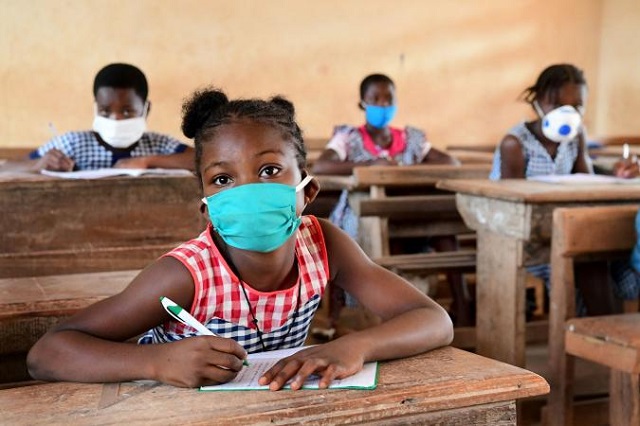
Kampala, Uganda | THE INDEPENDENT | The government has come up with a robust surveillance system to detect, control and handle Covid-19 infections among learners and staff in preparation for the reopening of schools in January.
The decision is based on the widespread of Covid-19 infections which prompted the second nationwide closure of educational institutions in June this year. At the time, health and education officials attributed the surge in cases to a weak detection system that hinged on school administrators reporting infections.
It was reported that due to fear of possible closures, school administrators and teachers concealed Covid-19 cases detected among learners. Now, ahead of the anticipated re-opening, officials from the health and education ministries have developed a tool that will enable learning to continue amidst the pandemic.
But it is now expected that the new tool will enable schools to collect health-related data, detect cases, and report to relevant officials according to Dr Shaban Mugerwa, a principal medical officer at the Ministry of Health and a member of the COVID-19 education response committee.
“Everybody who accesses the school must undergo COVID-19 screening. This going to go beyond the routine screening that is happening. It will be a little bit superficial. Somebody will deliberately probe for the COVID-19 symptoms (temperature, flu, cough or sore throat, difficulty in breathing, loss of smell or taste and fatigue). The screening will be done by a competent person, preferably a school nurse in whose absence a teacher will be trained,” he said.
The data that will be generated will be coded and transmitted using a mobile phone tracking system dubbed MTRAC currently being used in health centres for surveillance of diseases. This uses SMS to send health-related data at no cost. This data will then be shared on the Health Management Information System that education officers, district COVID-19 response teams, will also be able to access and respond to any alerts.
Dr Mugerwa adds that all persons who will be suspected to be infected with COVID-19 will be isolated and will undergo a free COVID-19 test carried out by the nearest health facility attached to the school. The school under the guidance of the local government task force will then carry out contact tracing of all close contacts.
Upon testing positive, parents will be notified immediately about the status of their children. Mugerwa says this has been added to avoid scenarios where parents are kept in the dark about the health condition of their children as was the case earlier this year.
He adds that learners with moderate or severe forms of the disease will be referred to regional referral hospitals immediately for care. Also, learners with a recorded history of chronic diseases like asthma and HIV will be sent to the hospital regardless of the nature of the disease they have.
On the other hand, learners in boarding schools with mild forms of the disease will be managed at school using the School-Based COVID-19 care guidelines. However, day-scholars will undergo home-based care.
Dr Anne Nakinsige, a principal epidemiologist in the surveillance department at the Ministry of Health says these guidelines have been adapted from the home-based care guidelines that were introduced last year to enable decongestion of COVID-19 treatment facilities.
As part of the home-based care guidelines, persons infected with COVID-19 are expected to remain isolated in a home while undergoing management. During isolation, sick persons are expected to wear a mask and they are supposed to get in touch with health workers twice a day.
The health worker is supposed to track their progress and give medical advice for at least 10 days. Under school-based care, the same guidelines will be duplicated. Dr Anne emphasises the importance of good feeding, physical exercise and sunbathing during isolation at the school. She says schools should desist from administering injectables during this time.
While the home-based care system has been adopted for schools, it is important to note that the health ministry has faced several challenges implementing it. One of the challenges was the inability of the health ministry to trace infected persons or stop them from infecting others in communities.
Dr Charles Olaro, the director in charge of curative services at the ministry of health says they believe the care guidelines will work better in schools. According to him, schools are controlled environments where management of the cases will be easy.
“I think schools are much better because we are talking of a congregate setting as compared to home where you have to go to Lubaga or Makindye for care. Also, the communication strategy in schools will be easy because there will be someone with a smartphone who will be virtually connected to update on the condition of the sick. At the end of the day, the school system should be better,” Dr Oalro said.
*****
URN
 The Independent Uganda: You get the Truth we Pay the Price
The Independent Uganda: You get the Truth we Pay the Price



